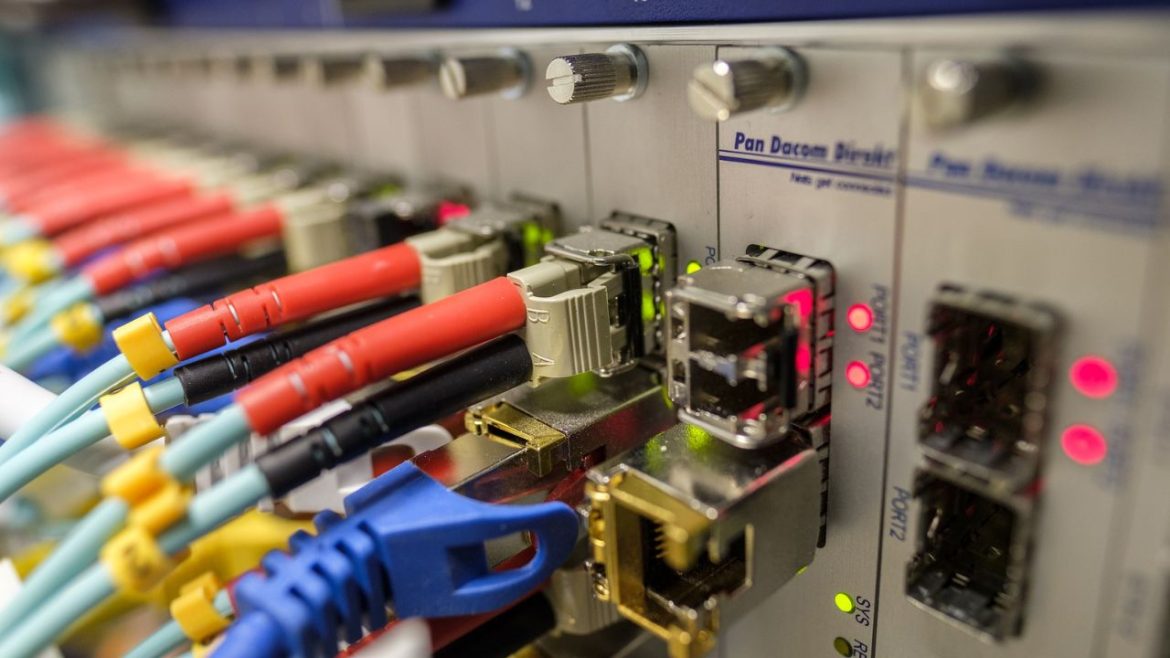Fibre optics has significantly changed network data transmission by providing high speed, reliability, and efficiency. These networks employ thin glass or plastic fiber strings to carry data as light signals. As the need for efficient and fast communication in industries grows, fiber optic networks have become the best solution to copper-based networks. The following article focuses on the advantages of fibre optic networks in sectors, particularly regarding productivity, security, and expandability.
Enhanced Speed and Bandwidth
The high speed at which data may be transported over fib optic networks is another benefit of these networks. Fiber optics transport data in the form of light, as opposed to traditional copper cables, which are characterized by electrical conductivity and signal loss. Thus, the capacity can be much more significant. This increased bandwidth allows industries to process large volumes of data without delay. Hence, fiber optics is ideal for real-time data processing and transfer applications. In industrial applications where timely communication is paramount, fiber optic networks provide efficient interconnection of different systems and equipment. This is especially so in areas like automation, remote sensing, and control, where data transfer delays can negatively impact operations.
Improved Reliability and Durability
Fibre optic networks are famous for their high uptime and robustness, which would work well in an industrial environment. Fibre optics are not affected by electromagnetic interference, which is prevalent in industries with many electrical gadgets and equipment installed. This immunity helps to avoid interruption of data transmission and communication errors that are very frequent and time-consuming. Also, fiber optic cables are much less sensitive to environmental conditions, such as heat, humidity, and chemicals. Such durability allows them to operate in harsh industrial conditions, thereby cutting down on the regularity of the maintenance and replacement of the parts.
Enhanced Security Features
Data security is one of the most significant issues facing industries, and fiber optic networks are immune to hackers and other types of data theft. Since fiber optic connections don’t release any electromagnetic signals, tapping into the wires is quite tricky. In contrast, copper cables have a signal that can be readily tapped by just tapping the wires without the cable owner knowing it. Just touching a fiber optic cable means that data will be lost. System administrators will notice this and be aware of a security threat. This increased security makes fiber optic networks especially important in industries dealing with large volumes of information, such as manufacturing, energy, and telecommunications. In this way, fiber optics contribute to the safety of critical industrial operations and the prevention of data leaks.
Scalability and Future-Proofing
This is why, as industries progress, the requirement for flexible and future-proof communication networks remains relevant. Fibre optic networks are also very scalable and can be expanded easily as industries add more fiber optic networks to their existing infrastructure. Fibre optics make it possible to gain more bandwidth compared to other cables by only changing the network equipment and not the wires. Furthermore, fiber optic technology is constantly improving and can be considered a solution for future industrial uses. This makes fiber optic networks a long-term investment for industries, especially in current scenarios where new technologies are being developed to meet the high demand for data.
Cost-Effectiveness and Efficiency
Though the costs of installing fiber optic networks are relatively higher than those of copper systems, the long-term advantages usually outweigh the initial costs. Fibre optic networks, thus, are cheaper to maintain and are long-lasting; thus, the operation costs, in the long run, will be low. Fibre optics are also efficient and reliable, which also means that they increase productivity and reduce the time a business may have to spend without its communication system, making it more cost-effective. Also, fiber optic networks are versatile in that they can be used for several services, including internet and data communication, as well as sophisticated communications networks, which provide multiple services in a single network. This consolidation helps decrease the number of infrastructures and, hence, the network’s cost.
Conclusion
In conclusion, fiber optic networks have become a vital component of contemporary industrial communication, as they provide high speed, high reliability, and security. They are suitable for various industrial applications due to their capacity to support high-bandwidth applications, resistance to harsh environments, and secure data transmission. Global industries are moving forward with the incorporation of new technologies and the growth of their businesses; hence, fiber optic networks will be of great importance in ensuring proper and effective communication.
